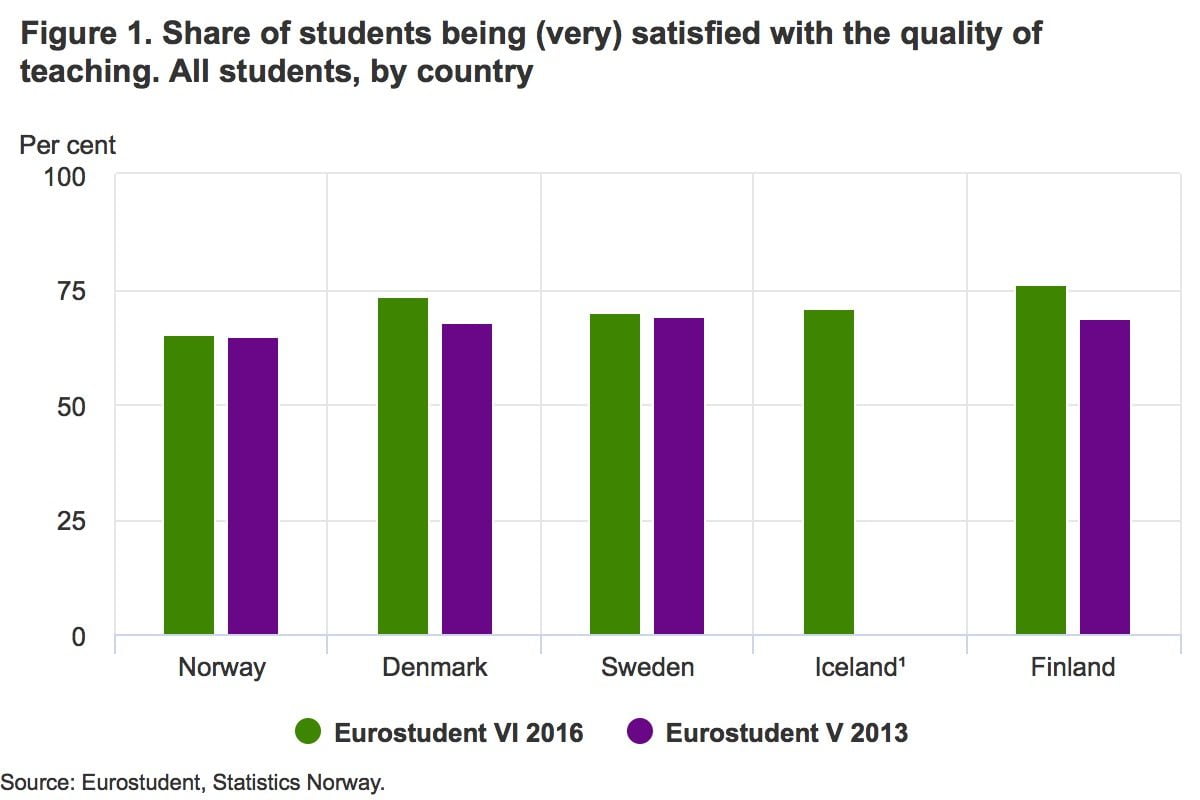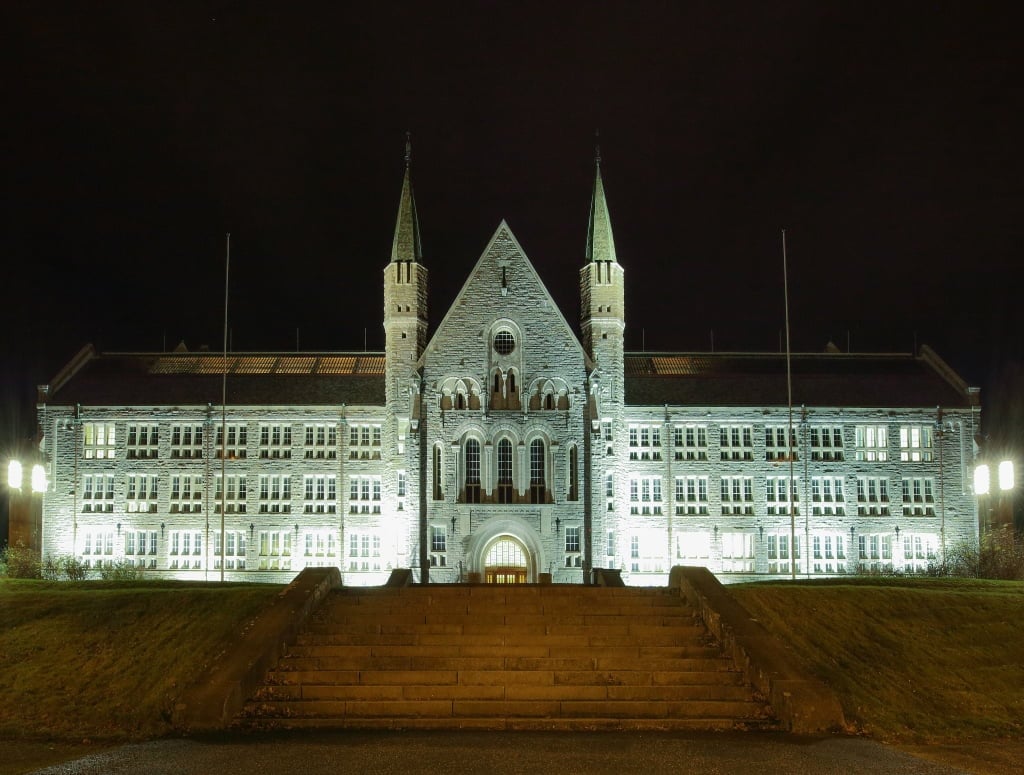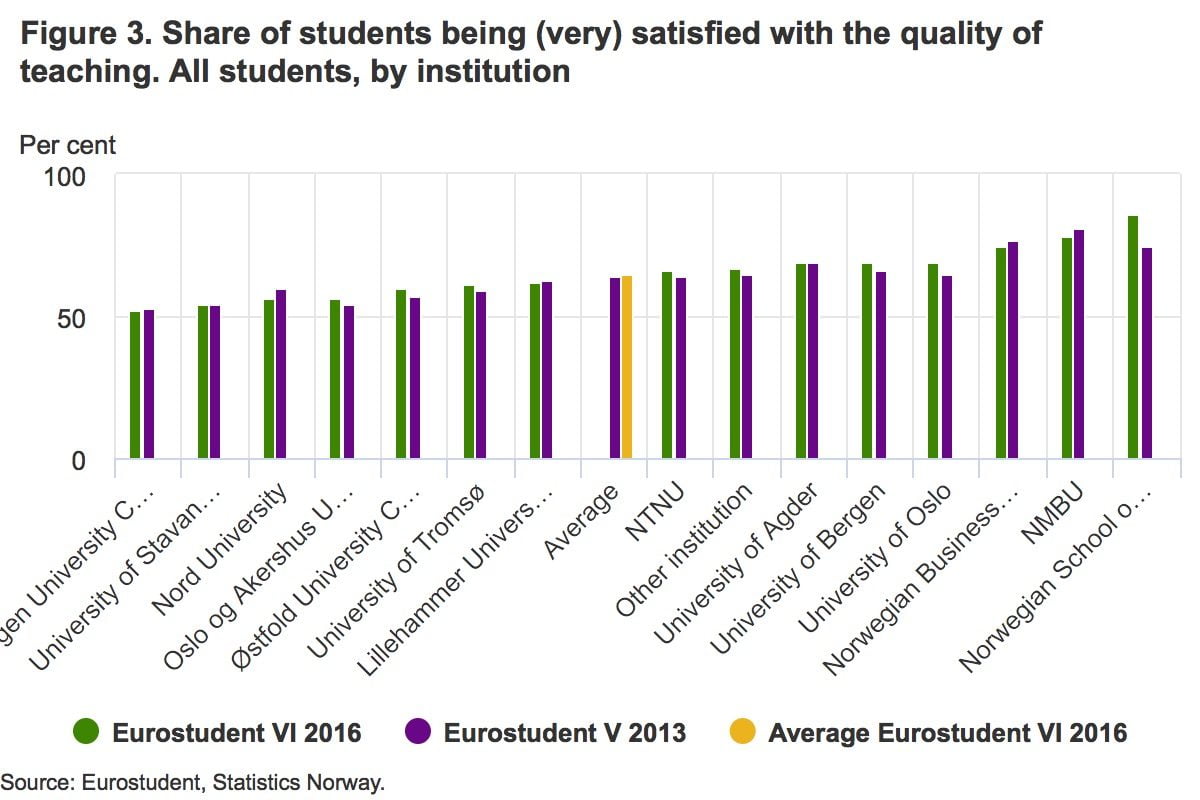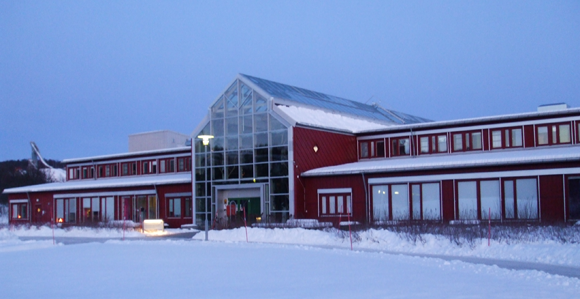
Are university students happy in Norway? The latest figures show that it depends on where they are studying.
65 per cent of students in Norway are satisfied or very satisfied with the quality of teaching, but differences between institutions are huge. Students are most satisfied at the Norwegian University of Life Sciences in Ås and at the Norwegian School of Economics.
The main aim of the Eurostudent project is to collect data that allows the social dimension of European higher education to be compared across countries. The focus is on the socio-economic background, the living conditions of students, and temporary international mobility. The sixth round of the report that began in 2016 has just been completed.
Norway lags behind its Nordic neighbours
The overall figures make grim reading for higher education bosses in Norway, as student satisfaction ranks below that of Finland, Sweden, Denmark and Iceland. The figures show that 65 per cent of students in Norway are satisfied or very satisfied with the quality of teaching. That's the same level as in the previous report three years ago, whereas student satisfaction increased significantly in Denmark and Finland.

According to an SSB report on the results, the differences could be related to how teaching is practised: “Students in Denmark spend more time on teaching and on personal study time, which may have affected the results. At the same time, there were reforms in higher education that might have an impact on the results in the different countries.”
Within Norway, the breakdown of results makes for interesting reading, especially for foreign students who may be considering where to study in Norway.

Big differences within Norway
Students studying at the Norwegian School of Economics were most satisfied with the quality of teaching, with 86 per cent answering positively. Among the universities, the Norwegian University of Life Sciences in Ås has the highest share of students who were satisfied with the quality of teaching, at around 80 per cent.
At the universities of Oslo, Agder, Bergen and at NTNU, the number of students who were satisfied was above the survey average. However, students at Bergen University College and the University of Stavanger were the least satisfied. At Bergen University College, barely half the students surveyed were satisfied with the quality of teaching.

Specialised institutions have the most satisfied students
Specialised university colleges – institutions at university level within a specific field that have the same responsibilities and authorities as universities – scored best in the survey. Following up the Norwegian School of Economics in first place was the Norwegian Business School. However, only 10 per cent of the total number of students surveyed were studying at a specialised university college.
“There can be differences within the three groups of institutions in higher education, as they differ from each other with regard to the programmes they offer and which students they recruit,” says SSB.

Variations between fields of study
Those studying business, administration and law, as well as students in natural sciences, mathematics and ICT, and students in arts and humanities are most satisfied with the quality of the teaching. Students in engineering, manufacturing & construction, as well as those studying health and welfare or education are the least satisfied.
There are also satisfaction differences between the level of study programmes. Bachelor degree students were significantly less satisfied across the board than those studying at Master level.
“Differences between different study programmes can be related to the variation in ages of the students. Students taking a Bachelor degree are often younger than Master students, and students taking a one-year programme or single subjects are often a more diverse group,” says the report.

